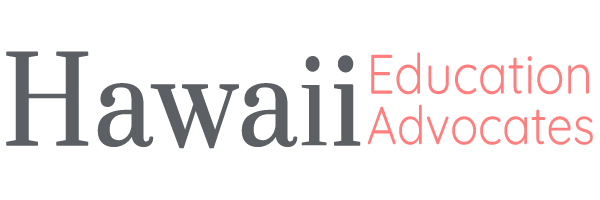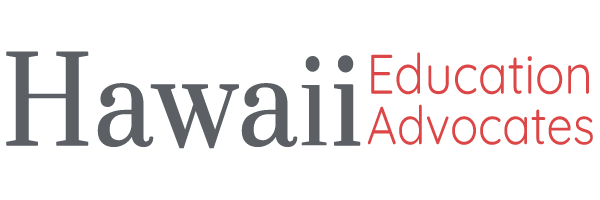
Compensatory education or compensatory services usually comes into the conversation when a student was supposed to be receiving a set amount of services but didn’t. Maybe the specialist (speech, OT, counseling etc) left unexpectedly or maybe they just forgot to deliver the services. Either way, the student is owed the services they were supposed to be receiving in their IEP. Schools can be very reluctant to agree to provide compensatory services and often times, compensatory services come into the picture as part of a due process claim (or resulting settlement agreement). The key take away here is the parent has to initiate some sort of action to force the school to provide the compensatory services. It’s rare that the school will raise their hand and admit they made a mistake.
How is Compensatory Services Calculated?
Theres a lot to consider when calculating the amount of time or services a student is owed. The considerations would include things like:
- Amount of services that wasn’t delivered
- Amount of services the student would need to place them in the same position had the school not violated IDEA
- Students deficits resulting from the loss of services and the amount of services needed to correct the deficit.
Unfortunately, compensatory services is not spelled out clearly in IDEA. You can research case law to find examples of compensatory services.
If The School Gives Me Money, What Can I Use It For?
It doesn’t happen too often, but sometimes the quick and easy fix for a school/district is to provide parents with a payment to make the problem go away. If you decide to take the payment instead of the services, you can use the money for things like;
- Tutoring
- Services like speech, OT, ABA, and more
- Assistive technology
- Therapy
- Internet access at home
- Transportation to school, after school programs or tutoring
Confidentiality Agreements
Know that schools/districts do not like this information getting out to the public. Settlement agreements often come with a confidentiality agreement that prohibits the parents from discussing the terms publicly. This is how districts keep things under wrap and avoid fixing systemic issues. While parents can push back on these, I also understand that parents need to do what’s best for their child. Plus, I rarely advocate for going public or using the media.
Compensatory Services Related To COVID-19
In March 2020, the US Department of Education (USDOE) issued guidance to all schools relating to the provision of a free and appropriate public education as it relates to COVID-19 and school closures. The guidance stated:
“If a [local educational agency, typically a school district (LEA)] continues to provide educational opportunities to the general student population during a school closure [i.e. by providing online learning], the school must ensure that students with disabilities also have equal access to the same opportunities, including the provision of [free appropriate public education (FAPE)]. (34 CFR §§ 104.4, 104.33 (Section 504) and 28 CFR § 35.130 (Title II of the ADA)). [State Educational Agencies (SEAs)], LEAs, and schools must ensure that, to the greatest extent possible, each student with a disability can be provided the special education and related services identified in the student’s [individualized education program (IEP)] developed under [the Individuals with Disabilities Education Act (IDEA)], or a plan developed under Section 504. (34 CFR §§ 300.101 and 300.201 (IDEA), and 34 CFR § 104.33 (Section 504)). ”
In short, if services are being delivered to general education students then special education students must receive their services too. The guidance went on to say:
“If a child does not receive services during a closure, a child’s IEP team (or appropriate personnel under Section 504) must make an individualized determination whether and to what extent compensatory services may be needed, consistent with applicable requirements, including to make up for any skills that may have been lost. ”
After the schools closed in March, we began hearing about distance learning and optional learning activities. Since when is school optional? Have you ever heard of homework being optional? Here’s my take. School districts decided that they may alleviate themselves of the legal obligation to provide a FAPE to special education students if they withhold actual instruction, even virtual instruction, from the general student population. They think by making these services optional, they avoided the requirement to deliver FAPE.
Late in March 2020, the Office of Civil Rights (OCR) along with Office for Special Education and Rehabilitative Services (OSERS) issued supplemental guidance stating
“To be clear: ensuring compliance with . . . (federal special education law) . . . should not prevent any school from offering educational programs through distance instruction.”
Practical Tips for Getting Compensatory Services Related to COVID-19
All schools have been advised to hold IEP meetings for their students in the first quarter of the new school year to determine if compensatory services are needed. In preparation for that meeting, I’d recommend doing the following:
- Create a record that supports any regression. Behavior changes, mental health needs, medications increased, one on one support needed….anything new or different when the school buildings closed.
- Keep track of missed services. If your child was supposed to receive 500 minutes of speech, but they received zero…create a record. Email the school with the concern and start a file. I often say, the party with the best paper trail wins!
- Don’t wait for the school, request your meeting NOW. Schools are planning to reopen soon. Email the school and request an IEP meeting. In your parent concern email before the meeting, include your concerns about regression, the missed services, and any new evaluations you think might be needed.
- If your student won’t be returning to school due to COVID-19, be sure the IEP placement makes it clear that the homebound or home hospital option is because of COVID-19.
If you need help accessing compensatory services, please reach out. I specialize in helping families in Hawaii navigate the world of special education. You can call me at 808.280.9884 or email at brian@hawaiiadvocates.com.

